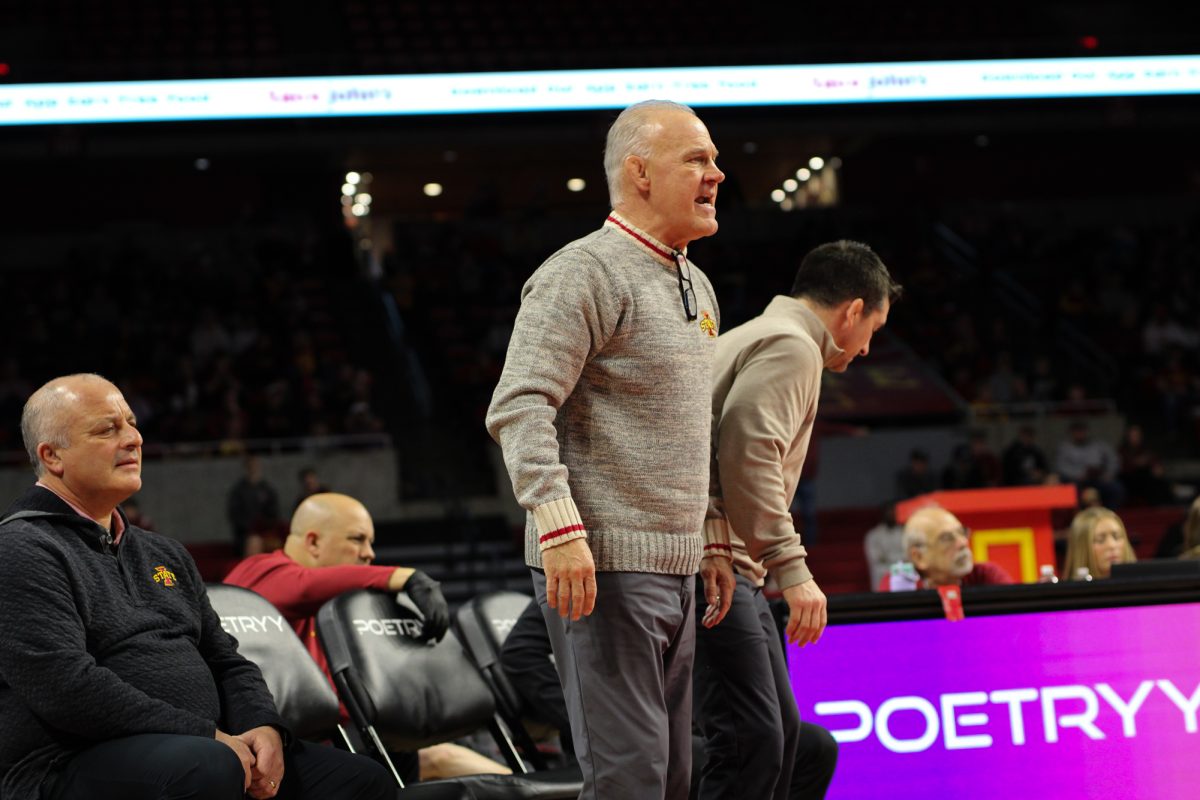Reaching out to assist: New peer group comforts victims of sexual assault
April 1, 2014
New to campus this year will be a sexual assault peer group dedicated solely to ISU students. This Extending Shelter and Support group run by Assault Care Center will have its first meeting from 7 – 8:30 p.m. April 8.
This group will be led by ACCESS advocate Natasha Oren and will be the springboard to future group designs. The group will change according to the response of students and what works best in the group setting. Another group will start up this fall and run semester long programs.
Oren, the advocate for this campus-based group, has had numerous hours of training and experience with these types of groups. She’s studied trauma and the best practices to help survivors. She also continues to take on-going training as a full-time advocate.
“As a sexual assault advocate, my job is to empower survivor’s by making sure they understand their options and supporting them in their decision,” said Oren. “I’m also legally privileged which means I can’t be called to testify in court. This sometimes makes survivors more comfortable to talk to me because I can be their confidential support system that they could build trust with.”
First and foremost, this group is provided to offer a safe space for students to explore their healing and connect with other survivors. The sexual assault peer group wants to normalize some of the things going on with survivors and empower victims in seeking more help. It’ll also be a combination of educational things such as informing survivors on trauma and what it does to your body. The group will also help survivors build on their own strengths by discussing their needs with other peers.
“Being a campus based group, students are faced with rape culture more than anywhere else with reminders of trauma and daily triggers. It’s extremely important to have a peer group because groups can help a victim decrease isolation,” said Angie Schreck, director of ACCESS. “Groups are a great tool in dismissing some myths and self-blame, hearing it from a counselor and therapist is different than hearing it from another survivor.”
Although there has always been a group available to sexual assault victims, there has never been a campus-based group at Iowa State. It’s a long and challenging process in finding space to host a group because ACCESS is an entity outside of Iowa State, Schreck said. Finding a time to accommodate not only the space provided but also students’ busy daily schedules is a tough task in itself.
Schreck said getting students interested enough to talk about their experiences among peers is also a challenge. According to the National Sexual Violence Resource Center, less then 5 percent of attempted or completed rapes are reported to law enforcement.
Alexandria Harvey, a sexual assault survivor has been actively pushing for a group such as this one to form at Iowa State. As a child, Harvey was sexually assaulted and has been dealing with the ramifications ever since.
“I kept it to myself because I thought it was my fault. It was difficult to deal with school, or even to simply socialize when I was dealing with it all by myself. I was afraid to be judged, look dirty or frowned upon,” said Harvey of her experience.
After attending a group in high school, it helped her open up and realize it wasn’t her fault. She was a victim like so many others are. Being in a group helps in the long run when dealing with daily triggers.
“Being able to tell my story, brought power to my darkness. I found the more I opened up, the more people opened up to me,” said Harvey. “I want people to know they’re not alone, there is hope, and you don’t need to be afraid to get help. It’s okay to get justice.”






